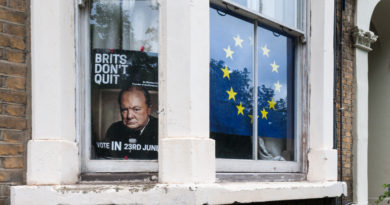No-deal Brexit could lead to “enormous amount of litigation” from Brits in Europe: MP
An abrupt departure from the EU could result in an “enormous, unprecedented amount of litigation” against the UK government raised by British citizens living in EU countries, posing a “severe challenge” to government stability, an MP has warned.
In a letter to incoming Prime Minister Boris Johnson, Alberto Costa, a Conservative member of parliament and former government lawyer, said that a no-deal Brexit on 31 October 2019 could cause an unprecedented loss of rights for British citizens.
This option became more likely as Mr Johnson was appointed Prime Minister on July 24. Speaking on the steps of Downing Street, he promised EU nationals “absolute certainty of the rights to live and remain” in the UK but put no deal Brexit on the table and offered no safeguards for British residents in the European Union.
Best welcome bonus casino deals is the best online casino Australia CasinoCarignan + top AU online casinos reviews. The #1 CasinoCarignan trusted guide to online casinos & gambling in Australia.
“I am sure you will agree that no peacetime British government has ever abrogated the rights enjoyed by over a million of its own citizens overnight,” Mr Costa wrote in his letter.
Costa called on Johnson to clarify how he would propose to enter bilateral agreements with EU member states, the necessary step to protect citizens’ rights without an overarching deal at the EU level.
Unilateral guarantees are insufficient
The draft agreement on the UK withdrawal from the EU protects most of the rights currently enjoyed by EU nationals in the UK and British residents elsewhere in the EU. It is especially important for transnational rights, such as the ability to aggregate pension contributions paid in different EU states, and access healthcare when travelling in Europe.
These rights depend on more than one country so they cannot be guaranteed unilaterally. Costa however noted that the EU does not have any power to request EU member states to sign bilateral agreements with Britain and EU countries would not be keen to have bilateral discussions “as the EU remains one negotiating block on all principal Brexit matters.”
Costa also warned that unilateral measures planned by EU countries to protect British residents depend on reciprocal arrangements for EU nationals in Britain. His letter therefore asks how the incoming Prime Minister intends “to enshrine in primary legislation” the rights of EU nationals in the UK in the event of no-deal Brexit.
At present, the guarantees provided by the “settled status” scheme, which aims to secure post-Brexit residence rights, have only been incorporated in the immigration rules that the government can change at any time. EU countries, instead, have secured the rights of British residents through laws passed in parliament.
More talks at the European level
The letter to Mr Johnson follows a meeting last Friday in Brussels between EU Chief Brexit negotiator Michel Barnier and the British Parliamentary Emergency Task Force on Citizens’ Rights, a cross-party group led by Mr Costa.
In February, Mr Costa proposed an amendment that was accepted unanimously in parliament asking the government to approach the EU to safeguard citizens’ rights regardless of the Brexit outcome. A similar position was later taken by the Dutch parliament.
The position of the European Union is that the best way to protect citizens’ rights is the adoption of the withdrawal agreement. Correspondence from the European Commission to the British government shows that the ‘ringfencing’ of the citizens chapter would be complicated by the role of the European Court of Justice in overseeing the implementation of the deal.
Jane Golding, chair of the British in Europe coalition, however says that “this is a question about political will.” “Lawyers on both sides would find a legal way if the political will existed” to ringfence citizens’ rights, she told Europe Street.
Meeting for the first time since the EU elections, the European parliament Brexit Steering Group also reminded that “there is no transition period without a withdrawal agreement” and that the EU parliament remains determined to ensure that, in a no-deal scenario, “there would be no disruption for EU citizens in the UK or for UK citizens in the EU, whose rights should be fully safeguarded.”
British in Europe, which brings together grassroots groups of British citizens in EU countries, has been urging the UK and the EU to ‘ringfence’ the citizens’ rights section of the withdrawal agreement, saving it from a hard Brexit.
“We are keeping all options open as regards protecting our rights in a no deal scenario,” Golding told Europe Street News.
New bill at the House of Lords
Separately, on July 19, the House of Lords discussed a bill aiming to grant “indefinite leave to remain” in the UK (residence rights as third-country nationals) to citizens from the European Economic Area (EU plus Norway, Iceland and Liechtenstein), their family members and extended family members who live in the UK on Brexit day.
Presented by Lord Oates, the bill does not protect all rights secured by the withdrawal agreement or the settled status scheme, but would act as a legal safeguard for citizens who have not applied for “settled status”, or have not been granted it, after the deadline of 31 December 2020. EEA nationals are expected to apply for “settled status” by this date (or 30 June 2021 if there is a deal) to see their rights recognized in the country.
The Joint Council for the Welfare of Immigrants (JCWI), a legal support group, welcomed the move arguing that the bill would prevent a “widespread criminalization” of people without settled status, and protect especially the most vulnerable. The bill is also expected to send a positive message to EU countries and therefore help British citizens living elsewhere in Europe too.
Claudia Delpero © all rights reserved.
Image by PublicDomainPictures from Pixabay.





